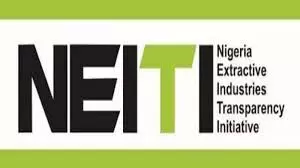- Home
- /
- Oil and Gas
- /
- NEITI lauds fuel...
NEITI lauds fuel subsidy removal, offers 8 strategic considerations

The Nigeria Extractive Industries Transparency Initiative (NEITI) has lauded the political will and sincerity of purpose demonstrated by President Bola Tinubu in removing fuel subsidies.
A statement from NEITI House, Abuja, on Tuesday described the move as a positive move by the administration to decisively implement the findings and recommendations contained in the NEITI reports.
The statement, signed by Mrs. Obiageli Onuorah, the Deputy Director/Head Communications and Stakeholders Management, said bold steps were required to block leakages, grow revenues, and advance the ongoing reforms in the oil, gas, and mining industries.
Supreme reports that President Bola Tinubu, in his inaugural speech on Monday, said the fuel subsidy regime had ended with the commencement of his administration.
Onuorah recalled that its recommendations for the removal of fuel subsidies have remained a persistent request since 2006, given the agency’s concerns about the huge financial burden that the subsidy regime imposed on the growth of the Nigerian economy over the years.
She explained that according to the NEITI reports, between 2005 and 2021, the country spent $74.39 billion, which translated to N13.69 trillion on subsidies.
According to the NEITI report, a breakdown of these figures showed that in 2005, the government paid $2.6 billion (N351 billion) as a subsidy. In 2006 and 2007, it paid $1.99 billion and $2.18 billion (N257 billion and N272 billion, respectively).
The report further pointed out that subsidy payments more than doubled in 2008 and 2010 and witnessed the highest increase ever in 2011 to $13.52 billion (N2.11 trillion).
She said a sharp decline was witnessed in the years 2012, 2013, 2014, and 2015, when it dropped to$3.34 billion (N654 billion) in 2012.
Onuorah said the decline in subsidy expenditure continued in 2016 and 2017 to as low as $473 million dollars (N154 billion) in 2017.
“The reduction was short-lived as the payments skyrocketed to over $3.88 billion (N1.19 trillion) in 2018 and 2021 to $3.58 billion (N1.43 trillion).
“By these figures, Nigeria expended an average of N805.7 billion annually, N67.1 billion monthly or N2.2 billion daily,” she said.
She said the NEITI data also showed that the amount expended on subsidies from 2005 to 2021 was equivalent to the entire budget for health, education, agriculture, and defense in the last five years.
Onuorah added that the sum equals the capital expenditure for 10 years between 2011 and 2020.
The deputy director explained that it was during this time (2011) that fuel subsidies dwarfed allocations to all critical areas of the economy.
“NEITI‘s persistent calls for the removal of petroleum subsidies were informed by the fact that the ways of funding the expenditure over these years relied more on federation account funds, the Federal Government, and sometimes external borrowing, with negative consequences on government overall revenue profiles.
“NEITI was also concerned that the consequences of funding subsidies have resulted in poor development of the downstream sector, declining GDP growth, a rise in product theft, pipeline vandalism, environmental pollution, and undue pressure on foreign exchange.
“Other challenges imposed on the economy were naira depreciation, low employment generation, the declining balance of payments, and worsening national debt,” she said.
Onuorah said in a policy advisory released by NEITI in late 2022 to drive home the urgency to remove subsidies and resubmitted earlier in the year 2023, NEITI recommended eight steps to manage subsidy removal.
She listed the steps to include the urgency to strengthen the implementation of the Petroleum Industry Act (PIA) as a whole and not in parts.
NEITI also underlined the importance of unveiling the implementation of people-oriented welfare programs to provide relief for the poor and vulnerable and advised on the priority attention to be paid to the rehabilitation of the nation’s four refineries currently ongoing.
On other policy considerations, she said the government should commission a special report on actual PMS consumption in Nigeria, enforce stringent sanctions for criminal activities in the sector, and conduct appropriate stakeholder consultations, engagements, and enlightenment.
“While the details of the implementation of the policy are being awaited, NEITI is set to commission special research on the actual consumption of PMS in Nigeria.
“The study is to establish precisely what the nation is consuming. NEITI’s view remains that the data on the country’s actual consumption is unknown, resulting in huge revenue losses to the nation through subsidy payments based on estimates.
“NEITI particularly welcomed President Bola Tinubu’s position that the revenues saved from subsidies should be channeled to education, health, roads, and other critical infrastructure,” she said.



